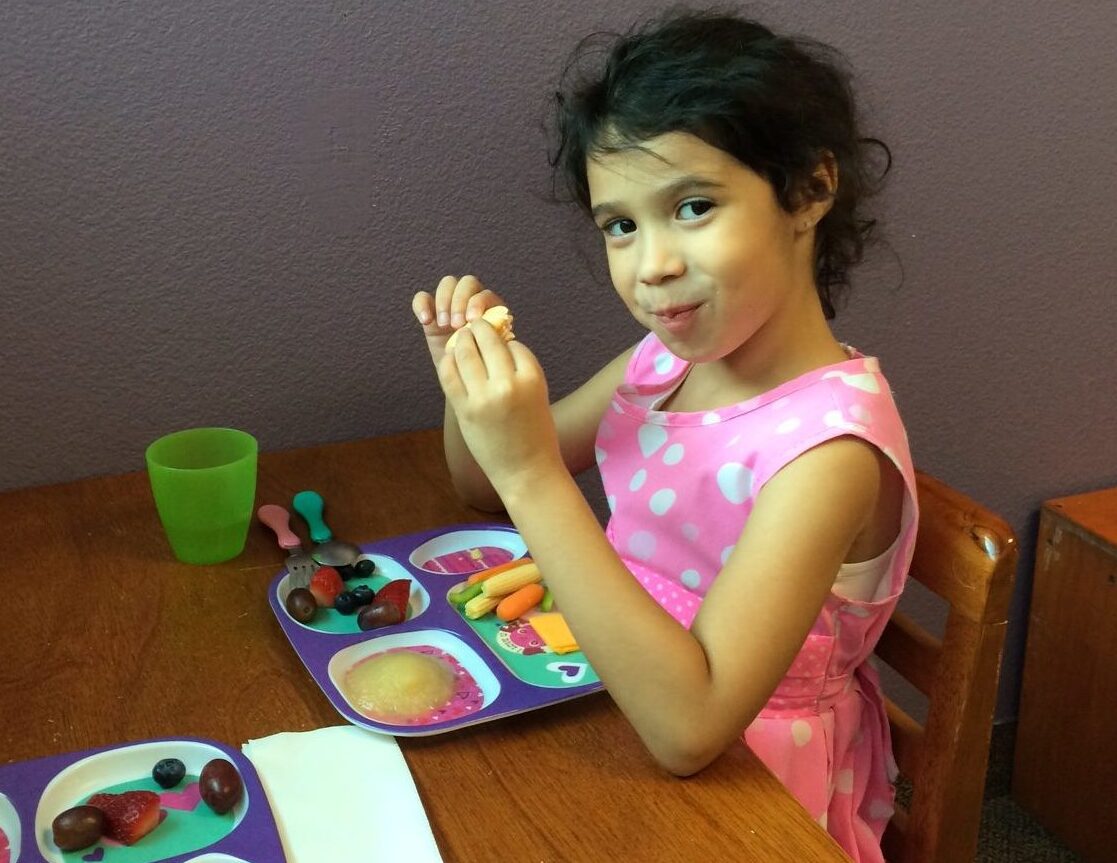At Kids Place, our highly skilled speech-language pathologists (SLPs) specialize in treating a variety of speech and language deficits, including expressive and receptive language delays, articulation disorders, and phonological processing challenges. But did you know our team is also trained to evaluate and treat pediatric feeding disorders?
What Is a Pediatric Feeding Disorder?
A pediatric feeding disorder (PFD) is a condition where a child experiences impaired oral intake that is not age-appropriate and is associated with medical, nutritional, feeding skill, and/or psychosocial dysfunction. Research shows that 1 in 37 children are affected by a pediatric feeding disorder, making early identification and intervention essential.
Signs Your Child May Have a Pediatric Feeding Disorder
If you’re concerned about your child’s feeding habits, start by asking yourself these questions:
- Does your child eat fewer than 20 foods consistently?
- Is your child experiencing difficulty with weight gain or weight loss?
- Does your child choke, gag, or cough during meals?
- Does your child avoid entire food groups (proteins, fruits, vegetables, etc.)?
- Does your child refuse specific textures (purees, crunchy, chewy foods, etc.)?
- Are mealtimes consistently stressful for your family?
- Has your child had a traumatic event during meals, such as choking?
- Does your child have a history of respiratory issues?
- Did your child struggle with breast/bottle feeding or transitioning to purees and solids?
If you answered “yes” to any of these questions, your child may benefit from a feeding evaluation. Call Kids Place today to schedule an assessment with one of our pediatric feeding specialists.
Tips for Encouraging Healthy Eating Habits at Home
While waiting for an evaluation, here are a few therapist-recommended strategies to encourage positive eating experiences:
- Eat together as a family. Meals are a social experience. Eating together allows your child to observe others enjoying a variety of foods, which can encourage them to try new things.
- Limit screen time during meals. Screens can be distracting and may prevent your child from learning proper eating habits and recognizing hunger cues.
- Make food fun. Allow your child to explore their food before eating it. Encourage them to touch, smell, and even play with different textures to build confidence and familiarity.
- Remove the pressure. Avoid forcing your child to eat. Instead, allow them to watch you eat first—it can take multiple exposures before they feel comfortable trying new foods.
- Keep a food journal. Track meals, foods your child has tried, and any changes in behavior or reactions. This can help identify patterns and guide future feeding therapy.
How Kids Place Can Help
Our pediatric speech-language pathologists are trained in evidence-based feeding interventions to address a wide range of feeding difficulties, from sensory-based aversions to oral-motor challenges. If your child struggles with feeding, early intervention can make a significant difference in developing healthy, stress-free eating habits.
Call Kids Place today to schedule an evaluation and get the support your child needs.







